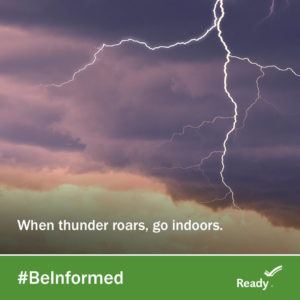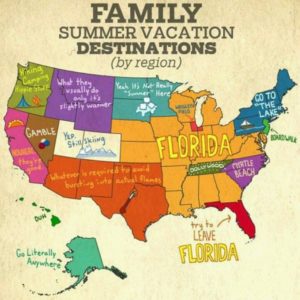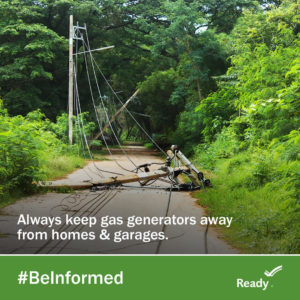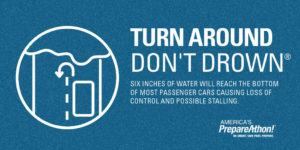By: Robert Avsec, Executive Fire Officer

Image Source: www.Ready.gov
If you’re a fire chief in a small to medium size community, it’s likely that one of the many “hats” you wear in addition to your chief’s hat, is that of Emergency Manager. So, if that’s the case this post is for you (And even if it’s not the case, this is still going to be a good read so stay here!).
One of my LinkedIn connections is a woman by the name of Sharon Lawrence whose LinkedIn headline reads, Federal, State & Local Government Relations, Marketing & Public Policy Expert. Talk about truth in advertising! When you read some of Lawrence’s musings about emergency planning and preparedness you’ll quickly learn a couple of things: (1) she knows what she’s talking about; and (2) what she’s talking about makes so much sense it’s scary.
On LinkedIn, Lawrence posted this the other day:
To add to my point about the importance of creating a national emergency preparedness portal, I’d note that of the 161 counties/consolidated city-county governments/City of Atlanta, in Georgia only 119 have any information on emergency management on the government’s home page.
Again, for many of those 119 governments, the only information provided is the name/telephone number of the emergency manager. In an era when the Internet is the first source of information for everyone, is this “haves/have nots” situation acceptable to us? Is it acceptable to people who be traveling through those communities when a disaster strikes? Isn’t the right thing to do to create a combined federal/state/local government portal with high quality content, supplemented by information from the local governments (which could always be the top response in a Google search for terms like “emergency,” “disaster,” “hurricane,” or “wildfire)?
With winter finally over (in most of the U.S.) and summer weather conditions already affecting much of the continental U.S. (We had about three days of spring here in West Virginia!) Americans will be traveling all over our great country in search of rest, relaxation, leisure, and much more.
great country in search of rest, relaxation, leisure, and much more.
And many will be coming to small to medium sized towns and counties like yours because towns and counties like yours, along with the states where you’re located, are marketing themselves as vacation destinations.
Increasingly, areas of the U.S. depend heavily on tourism to sustain local economies so there is more aggressive marketing of communities as vacation destinations to make up for revenues being lost through business and industry closures.
With increased tourism comes a greater life safety risk when a major emergency, like a wildfire or hurricane, threatens a resort community. While the local population may be informed, and educated based on their experience as full-time residents, tourists are living temporarily in an “unknown” land (However, if you’ve read Lawrence’s article on the subject, you’ll find that your “regulars” are probably not much better prepared than your visitors).
Video: Important Things To Know Before a Disaster
How will you and your department and your community react when a severe weather event, e.g., severe thunderstorm, tornado, or hurricane, strikes your locality? How about an earthquake or a volcanic eruption (Don’t know about you, but those images from Hawaii are downright scary!)?
In December 2016 I posted an article here entitled, Tourists: 3 Strategies for Protecting Them During Wildfires, a  couple of months after the catastrophic wildfires that ravaged the mountainous areas in and around the eastern Tennessee tourist destination towns of Pigeon Forge and Gatlinburg.
couple of months after the catastrophic wildfires that ravaged the mountainous areas in and around the eastern Tennessee tourist destination towns of Pigeon Forge and Gatlinburg.
I think you’ll find that the blog’s content is just as applicable for weather events as it is for wildfires. What do you think? Share your thoughts in the comments section for my benefit and those of other readers.
Remember, this social media stuff works both ways!
For more information on emergency preparedness visit www.Ready.gov
For more fire prevention information, visit the United States Fire Administration’s webpage, Outreach Materials and Educational Programs at https://www.usfa.fema.gov/prevention/outreach/

 Fire & EMS Leader Pro The job of old firefighters is to teach young firefighters how to become old firefighters!
Fire & EMS Leader Pro The job of old firefighters is to teach young firefighters how to become old firefighters!